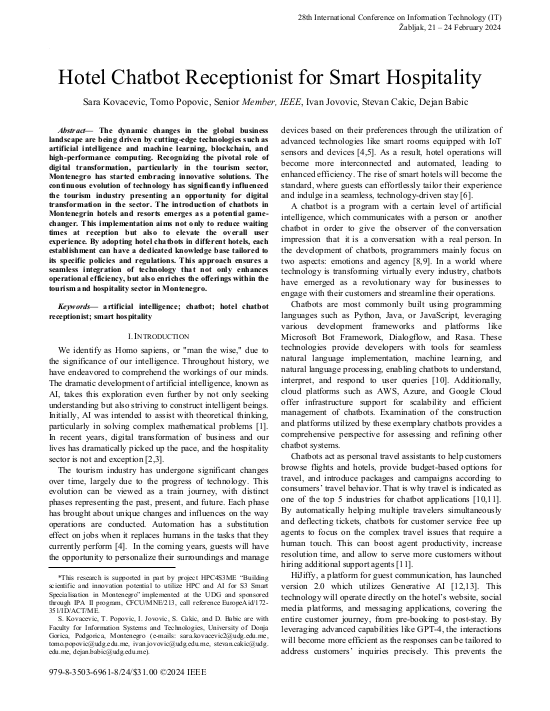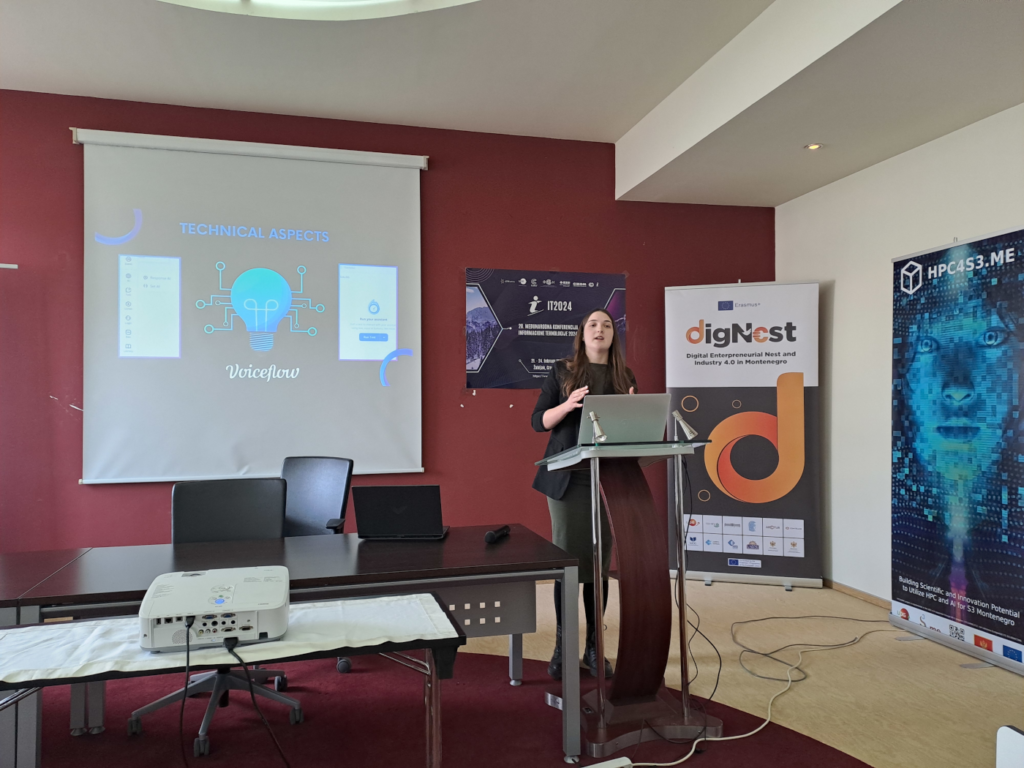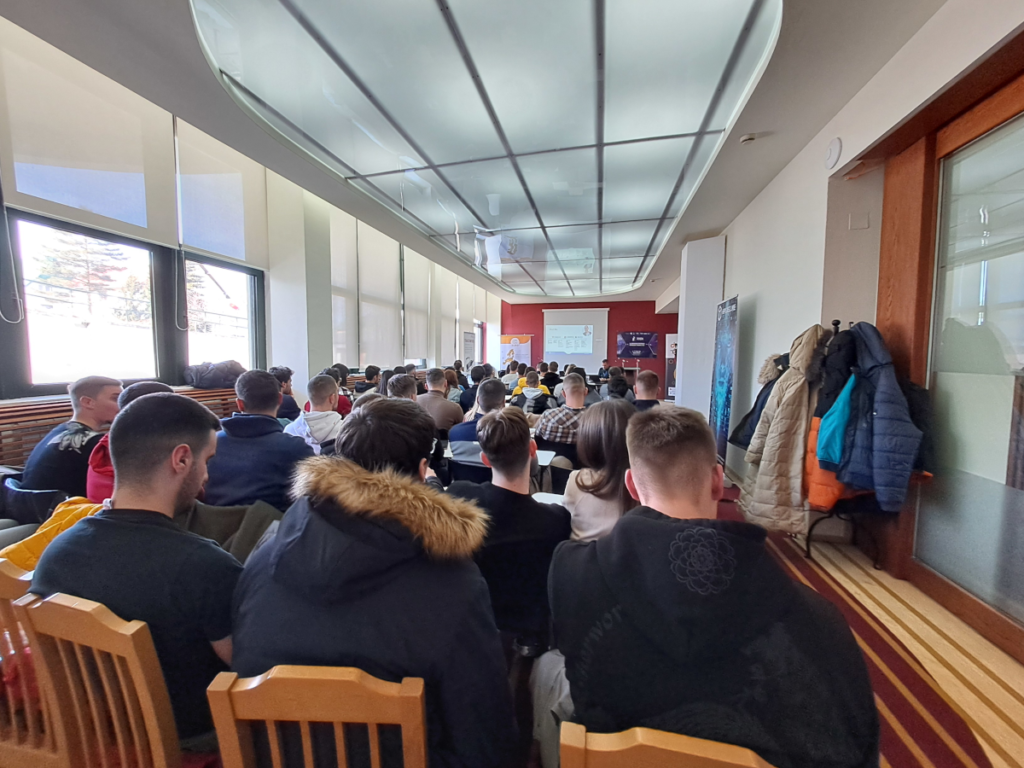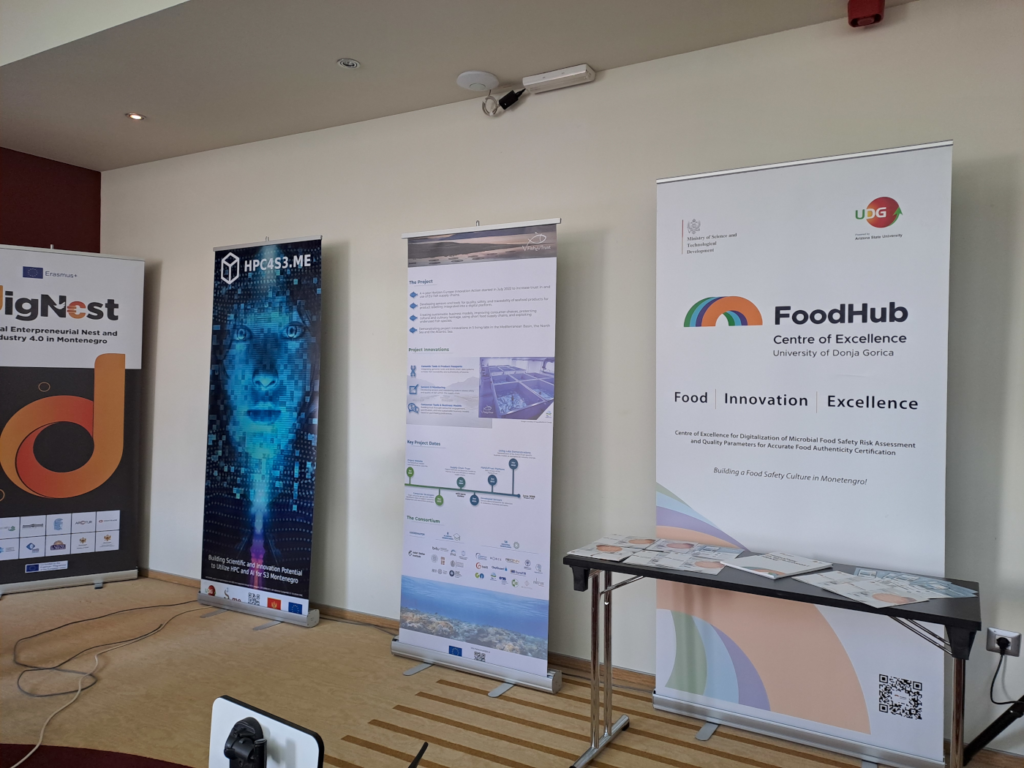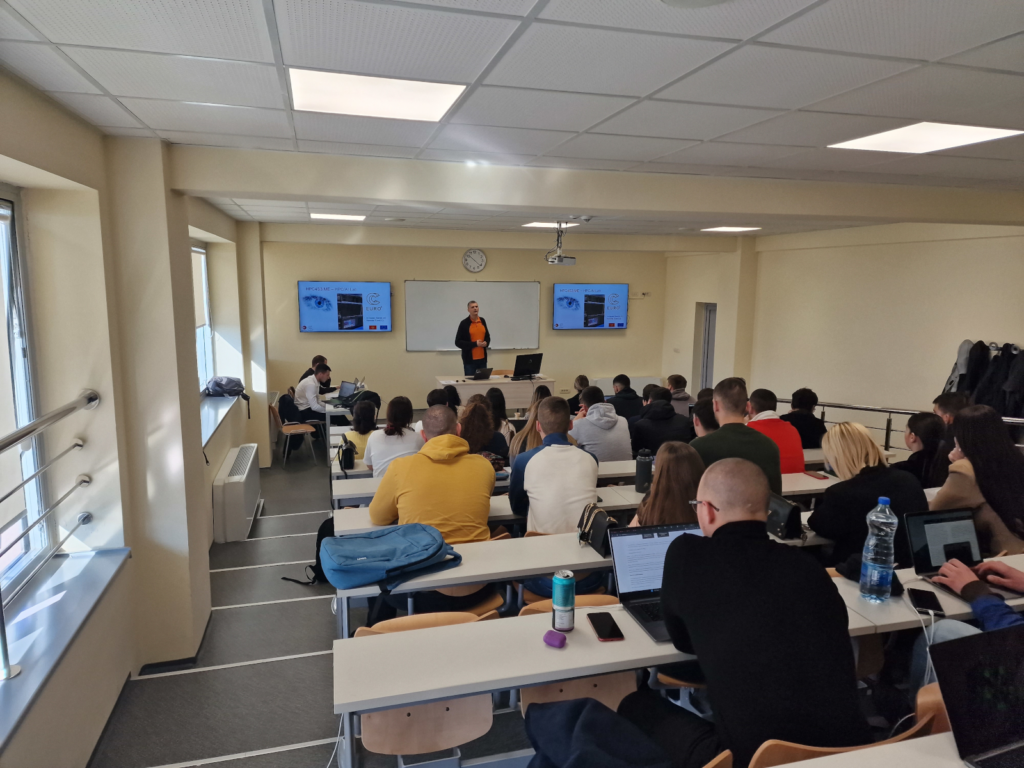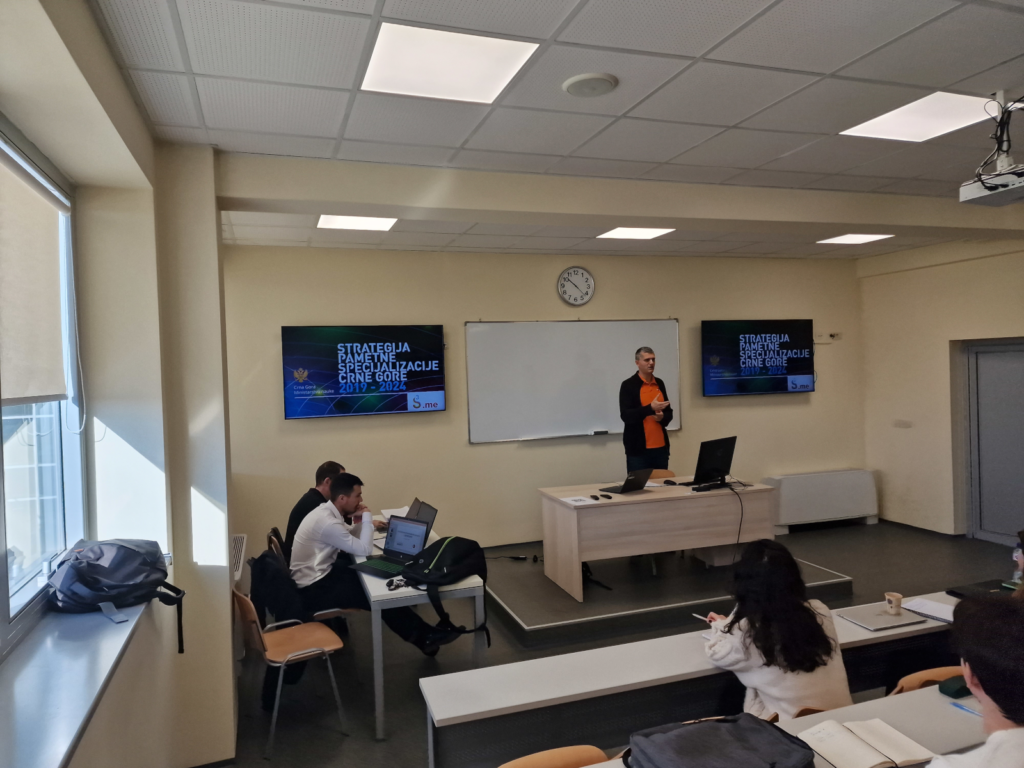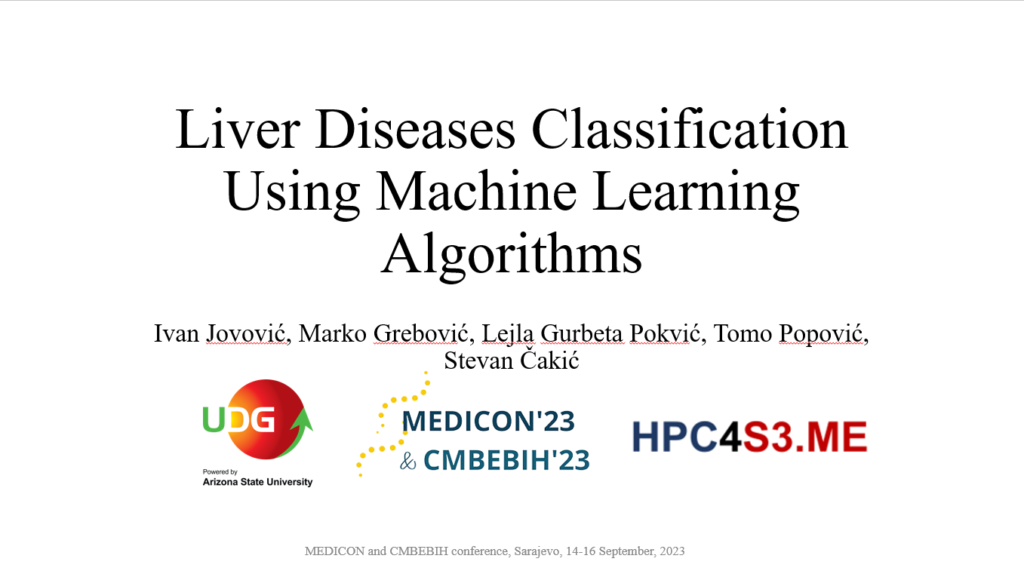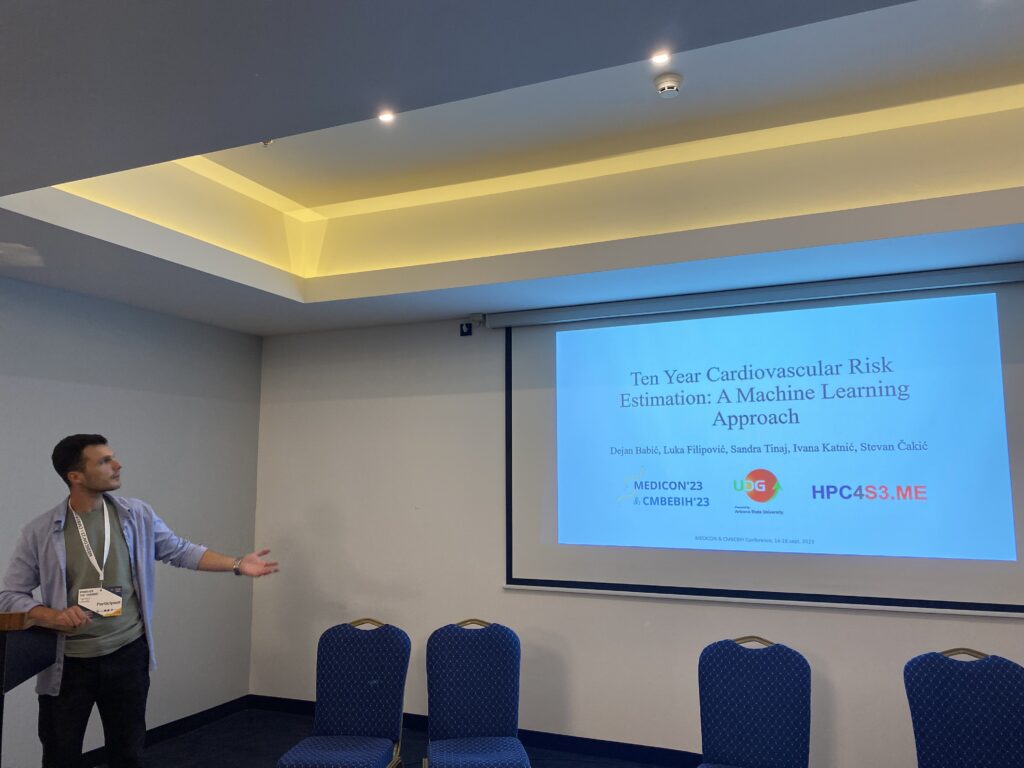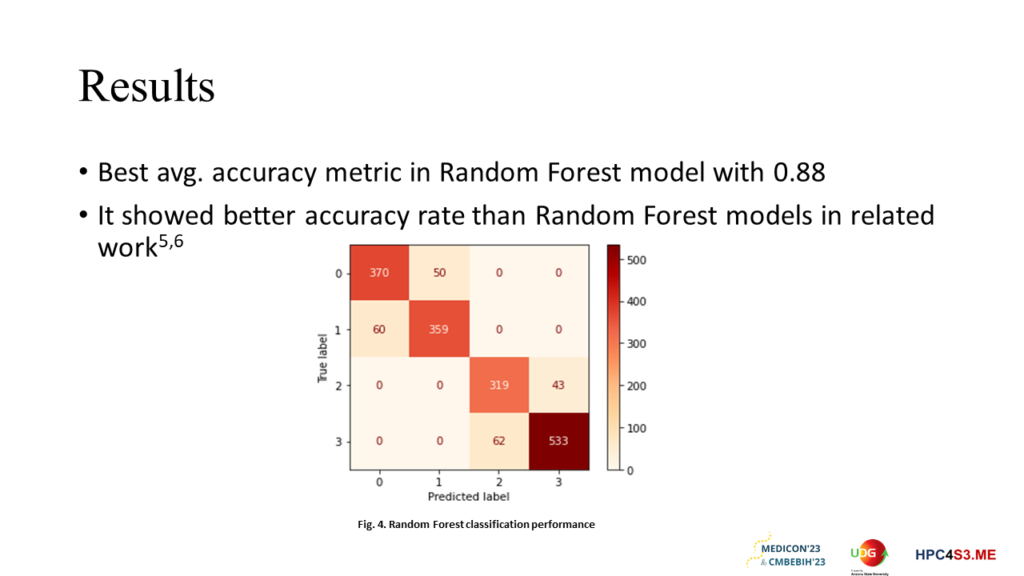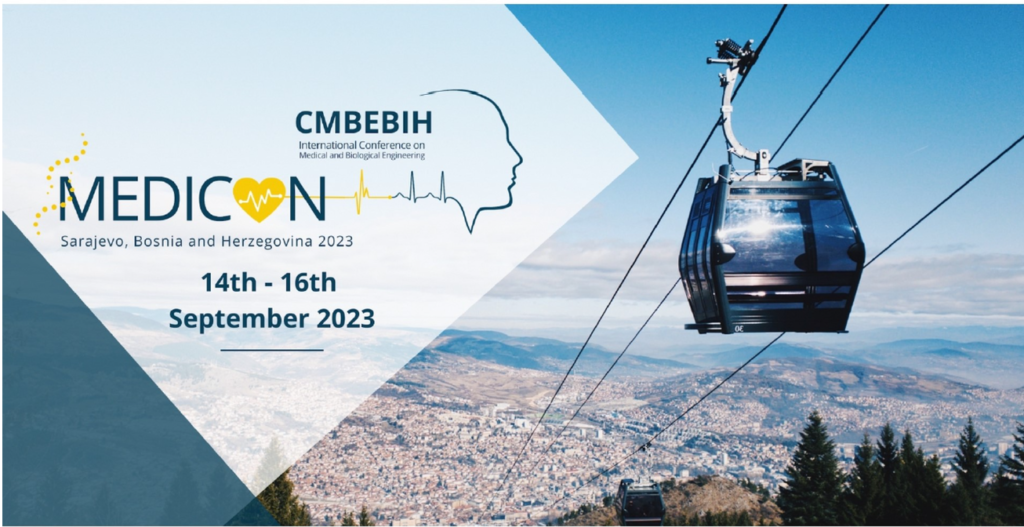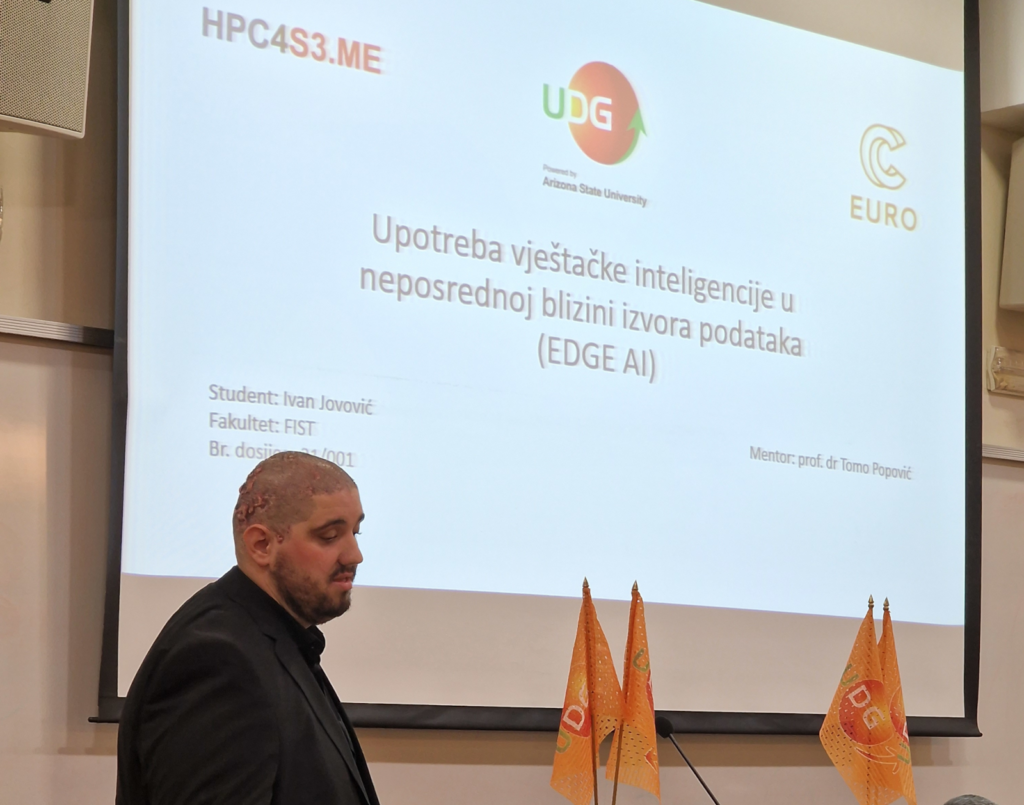The paper “Hotel Chatbot Receptionist for Smart Hospitality” by Ms Sara kovacevic, Tomo Popovic, Ivan Jovovic, and Stevan Cakic was presented at the 28th IEEE International Conference on Information Technology. This is a great example of the engagement of young researchers to utilise HPC/AI tehcnology in the priority domains of S3 Montenegro, in this case tourism and hospitality.
ABSTRACT – The dynamic changes in the global business landscape are being driven by cutting-edge technologies such as artificial intelligence and machine learning, blockchain, and high-performance computing. Recognizing the pivotal role of digital transformation, particularly in the tourism sector, Montenegro has started embracing innovative solutions. The continuous evolution of technology has significantly influenced the tourism industry presenting an opportunity for digital transformation in the sector. The introduction of chatbots in Montenegrin hotels and resorts emerges as a potential game-changer. This implementation aims not only to reduce waiting times at reception but also to elevate the overall user experience. By adopting hotel chatbots in different hotels, each establishment can have a dedicated knowledge base tailored to its specific policies and regulations. This approach ensures a seamless integration of technology that not only enhances operational efficiency, but also enriches the offerings within the tourism and hospitality sector in Montenegro.
